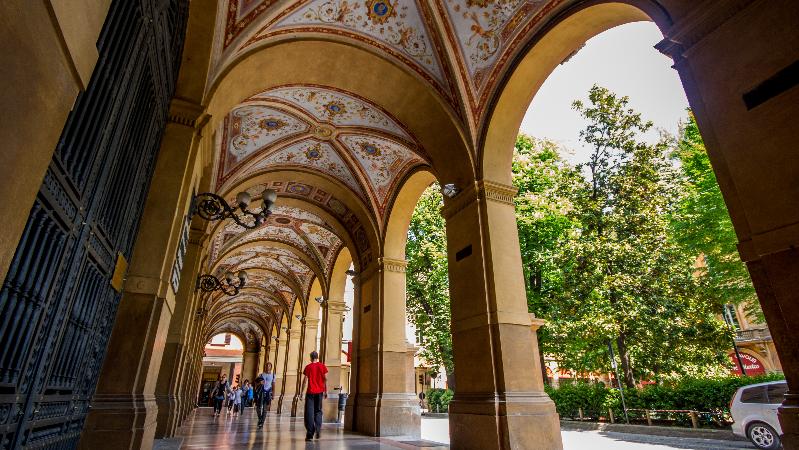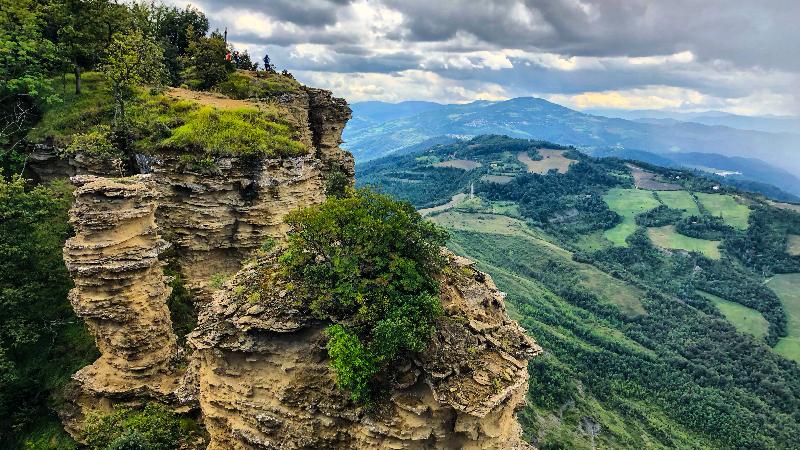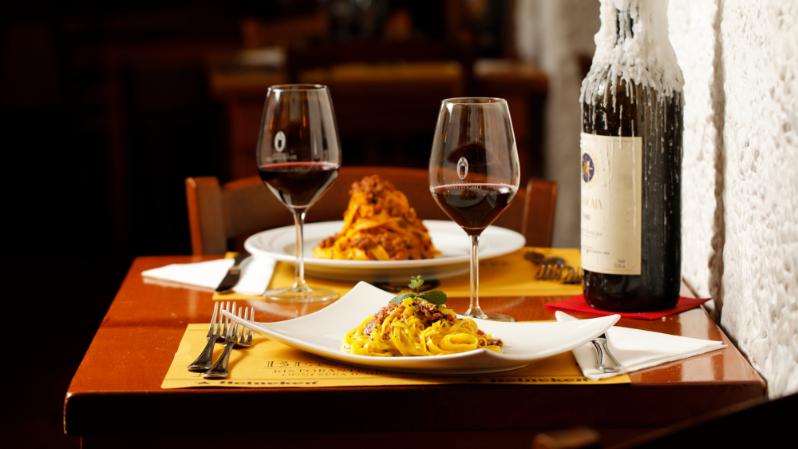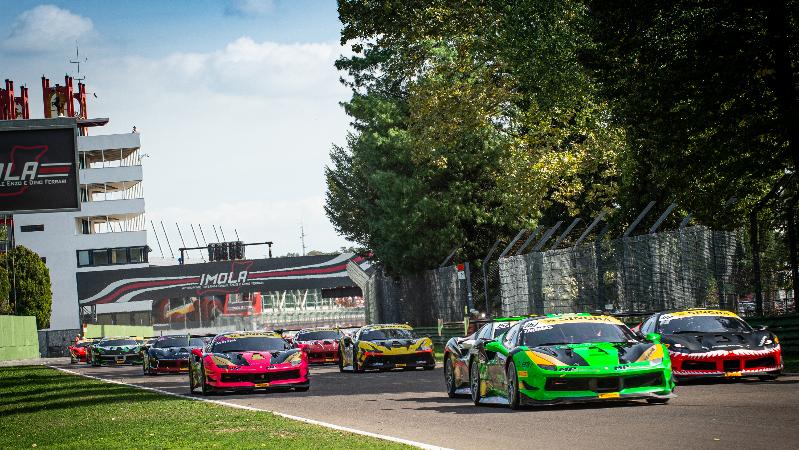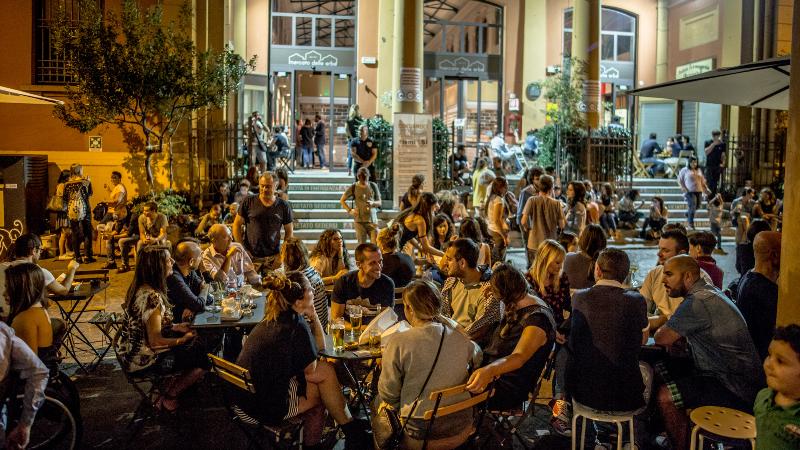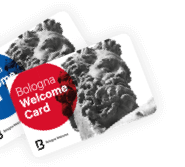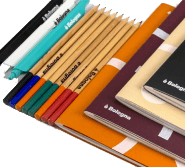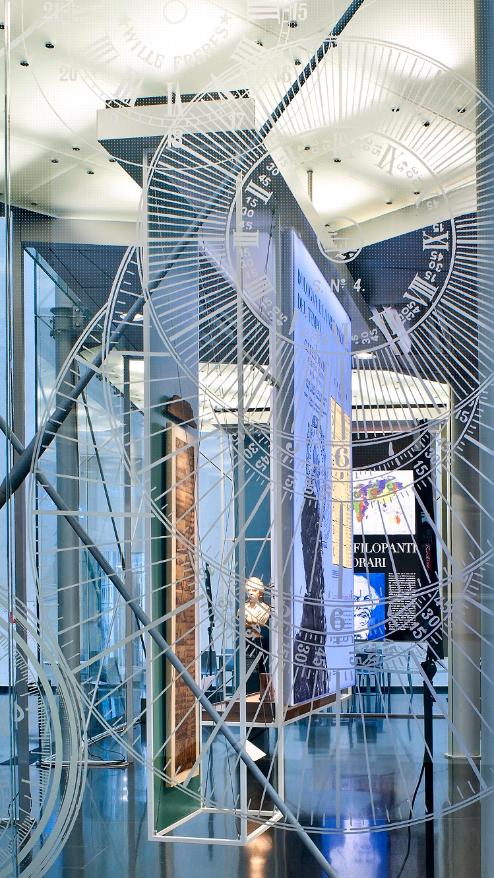Home / Media & Press /
The stage is set for a programme of initiatives to promote the city’s history, popular culture and to encourage reflection on the present.
Since the very
first weekend of its opening, Palazzo Pepoli has reinvented itself: it is no
longer just the home of the Bologna History Museum, but also an authentic
meeting place where the rich cultural and creative heritage of Bologna and its
many local organisations can be enhanced and promoted.
A series of events organised by Roberto Grandi entitled Prospettiva Bologna. Tra narrazioni e identità (Bologna Perspectives: between narration and identity) will turn Palazzo Pepoli into a space for reflection to exchange thoughts on the city’s identity, combining memories of the past with projects for the present and the future. The identity of a city is also reflected in the people who inhabit it or have passed through it, and as it is an important part of everyone’s personal history, reflections on the city will also explore the lives of those who live in the city.
The Sala della Cultura
will host a series of meetings with various speakers offering insights into one
of the city’s most important buildings, Palazzo Pepoli, covering five different
themes: Urban future, between challenges and transformations; Social and
technological innovation; Culture and creativity; Religious and intercultural
dialogue; History and Memory of Bologna. The first meeting will take place on
the day of the Palazzo’s reopening, Saturday 30 November at 5 pm, with the
geographer Franco Farinelli discussing Bologna as a frontier city. The second
meeting, scheduled for 15 December, will be with the medievalist Maria
Giuseppina Muzzarelli, who will speak about Bolognese women in history.
From January onwards,
the programme will comprise a series of meetings organised by the Fondazione
Gramsci Emilia-Romagna, along with activities sponsored by other local cultural
organisations.
Palazzo Pepoli will also become the ‘home of Bolognese popular culture’ with a lively and interactive presentation on traditional knowledge and the Denominazioni Comunali di Origine (De.Co.), i.e. a recognition established and granted by the municipal administration to protect and enhance a typical product. A small exhibition space has been set up in the central tower of the covered square, where the various De.Co. for traditional craftsmanship in the metropolitan area will be showcased: the local excellences that have recently been recognised as typical of the area include the Bolognese Filuzzi dance, Bolognese Tarot cards, the art of the ‘sfogline’ (skilled pasta makers) and the art of violin making. In addition, a prominent place will also be given to the Budrio 'ocarina' flute, the art of stone-cutting and sandstone sculpture, the lace of the Aemilia Ars and the puppet theatre of the Bologna school. The latter also feature in the museum’s collections, but are here with a brand new addition: a puppet theatre, together with a laboratory and exhibition hall, curated by Burattini a Bologna, offering visitors an authentic immersion in the culture of the Bolognese "wooden heads". The performances will start in January, while the ‘Burattini a Bologna Experience’ will start in December (the first performances are scheduled for Monday 2 and Thursday 5 December).
Meetings and initiatives on popular culture, with free admission (booking required), will kick off with an event in Piazza Coperta on Sunday 1 December at 5 pm, with a conversation between Andrea Mingardi and Roberto Serra on the Bolognese dialect. The second opening weekend will feature a conference-show by Marco Piazza on the Bolognese ‘Zirudèla’ recitation style on Saturday 7 December at 5 pm and with Riccardo Pazzaglia on Sunday 8 December to talk about ‘Bologna e le maschere della Commedia: viaggio con le teste di legno bolognesi’ (Bologna and Comedy masks: a journey with the Bolognese wooden heads).
Subsequently,
the programme will comprise several events, each of which will present a
different aspect of traditional De.Co. knowledge. In mid-December, CNA will
present the art of the ‘sfogline’ with a conference by Angelo Varni in the Sala
della Cultura, scheduled for Saturday 14 at 11 am. In the afternoon, at 5 pm,
the Accademia del Tarocchino (Bologna Tarot Academy) will hold a conference on
the history of the Bolognese card game with Lorenzo Cuppi in the Sala della
Cultura, followed by a demonstration of the game in Piazza Coperta.
Additionally, in January, a series of events will be held on traditional
Bolognese violin-making techniques, organised by the Metropolitan City of
Bologna, and on the Filuzzi dance, organised by the Movimento per il rilancio
della Filuzzi (Filuzzi Revival Movement) in Bologna and the Metropolitan City.
The Fondazione Bologna Welcome also offers a wide range of cultural events that can be booked for a fee: from classical matinée concerts by the Philharmonic Orchestra of the Bologna City Opera House to live performances by the Novensemble Orchestra, followed by an aperitif with the artists. Additionally, a series of themed meetings with Mirarte tour guides will be held, focusing on the art, history and traditions of Bologna. The initial meeting will cover the symbolism of Christmas, which will be further discussed throughout the month of December.
Calendar of events and bookings available on: www.palazzopepoli.it
Now managed by the Fondazione Bologna Welcome, Palazzo Pepoli is set to become a major tourist destination with an integrated offering that includes special rates for admission to the Bologna History Museum, as well as other tourist activities such as the Discover Bologna walking tour and a visit to the Clock Tower.
Opening hours
Palazzo Pepoli is open from
Wednesday to Monday.
Open from 10 am to 7 pm on Mondays, Wednesdays and Thursdays
Open from 11 am to 8 pm on
Fridays, Saturdays and Sundays
Closed on Tuesdays
Christmas holidays:
Special opening from 10 am to 5 pm
on 24 and 31 December
Open from 10 am to 7 pm on 1 and 6
January
Closed on 25 December
Bologna History Museum tickets:
●
Full price €10 (including audio
guide)
●
Reduced price: €7 (over age 65,
groups, companions of Card Cultura holders)
●
Reduced price for
residents/students: €5 (residents of the Metropolitan City of Bologna, youths
aged 12 to 18, university students)
● Free of charge: Card Cultura or BW Card holders, children under 12 years of age, disabled persons and their companions, middle and secondary school groups
